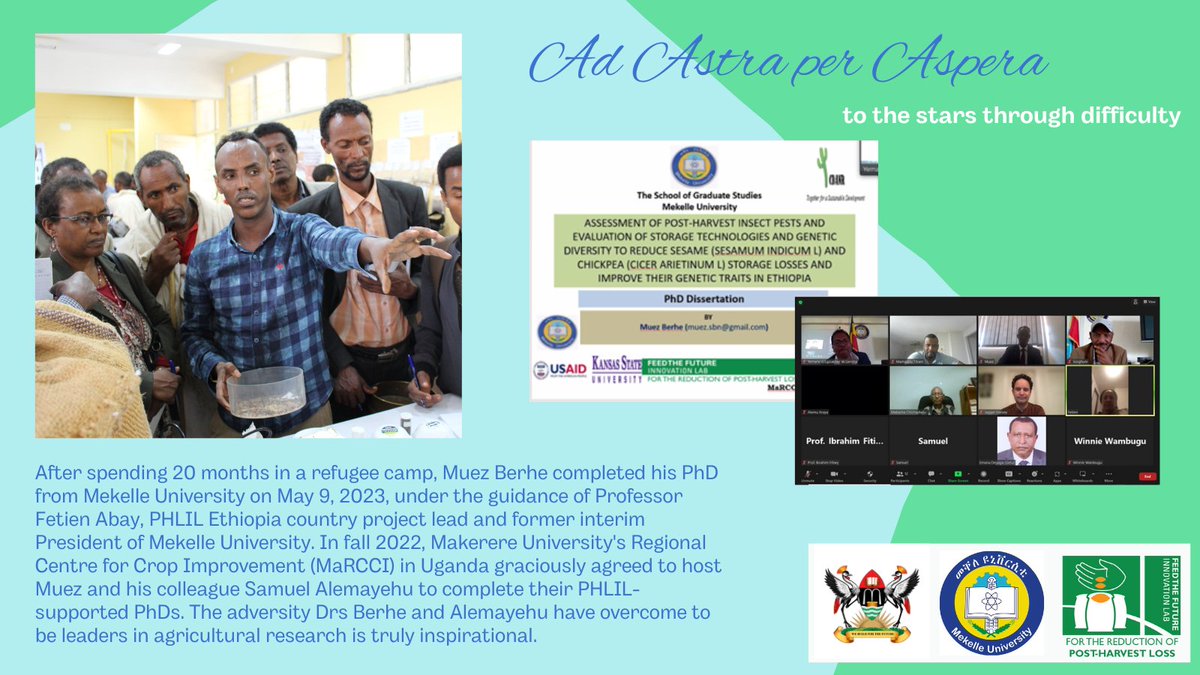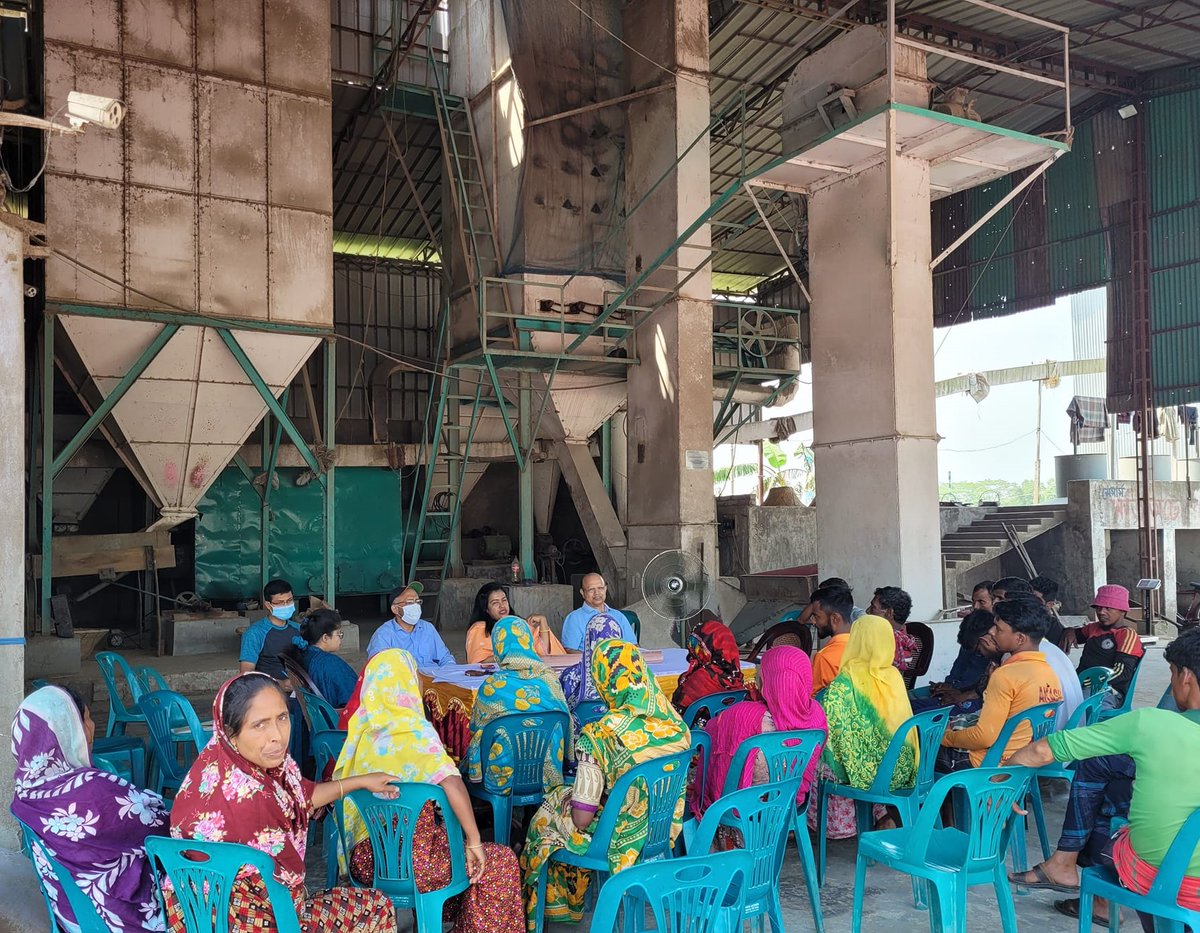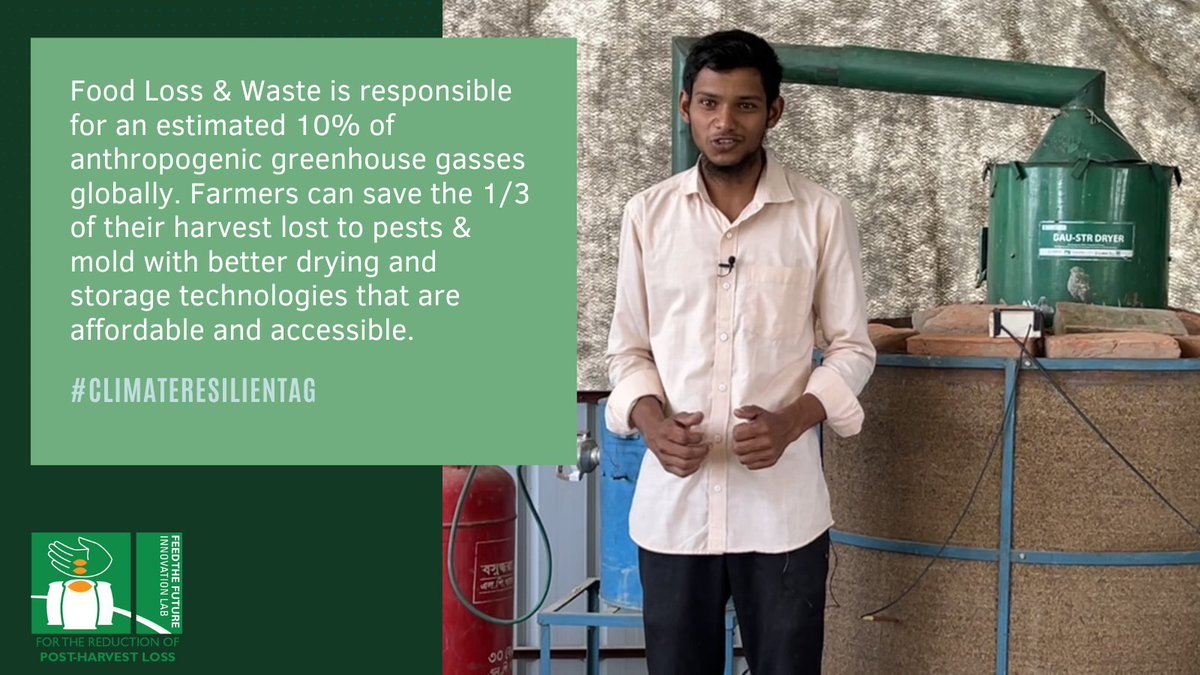
PHL Innovation Lab
@phlinnovlab
Feed the Future Innovation Lab for the Reduction of Post-Harvest Loss. Located at Kansas State University with partners around the world.
ID: 799257502735077377
http://www.k-state.edu/phl 17-11-2016 14:26:52
302 Tweet
394 Followers
131 Following

Muez Berhe spent 20 months in a refugee camp due to the war in Tigray, Ethiopia. Yesterday, he defended his PhD Dissertation from Mekelle University on PHL in sesame & chickpea. His perseverance exemplifies the Kansas state motto: Ad Astra per Aspera – to the stars through difficulty.


PHLIL partner Bangladesh Agricultural University (BAU) works w/ private & govt stakeholders to scale locally developed drying & storage technologies, reducing loss & providing biz opportunities for smallholders & entrepreneurs. Technology gender assessments ensure women too can access these opportunities


Food Loss & Waste is responsible for an est. 10% of anthropogenic greenhouse gasses globally. PHL Innovation Lab is helping farmers save the 1/3 of their harvest lost to pests & mold, increasing #FoodSecurity & #ClimateResilientAg






In Ghana, PHLIL has enabled small businesses to thrive. From supporting the growth of Sesi Technologies to fostering improved market systems for women poultry producers & smallholder maize producers, our partners have shown how reducing post-harvest losses is good for business.

Bangladesh is particularly susceptible to the impacts of climate change. The PHLIL team Bangladesh Agricultural University (BAU) has made huge gains in adapting, testing & scaling appropriate technologies for drying & storage that increase resiliency through agriculture-led economic growth.

Post-harvest loss is an enormous global challenge – eliminating food loss & waste could feed 2 billion people. PHLIL has identified, tested & scaled solutions that are accessible & appropriate in local contexts. K-State College of Agriculture & the lab remain committed to this mission.
